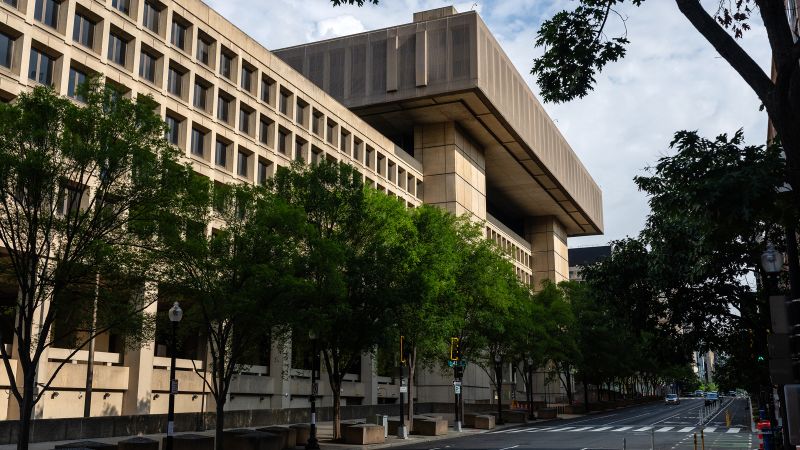In recent developments, the political landscape within the FBI has undergone significant changes, particularly in response to actions surrounding the January 6, 2021, Capitol attack. Two high-ranking officials, Brian Driscoll and Steve Jensen, are set to be dismissed from their posts. These firings follow ongoing tensions within the agency, notably among personnel deemed to be less than supportive of former President Donald Trump’s administration.
Brian Driscoll, who served as the acting FBI director leading up to the appointment of Kash Patel, has been informed of his termination. Concurrently, Steve Jensen, who held leadership responsibilities in the Washington Field Office, is also facing dismissal. Sources indicate that these firings form part of a broader strategy to remove FBI agents perceived to oppose Trump or have had notable disagreements with the administration. The White House has not publicly commented on the matter, and efforts to obtain statements from various FBI divisions, including the New York field office, have been unsuccessful.
In an internal communication revealed to CNN, Jensen addressed colleagues regarding his impending termination, set for August 8, 2025. He expressed a commitment to maintaining professionalism and integrity despite the challenges he faced, reinforcing the importance of law enforcement in protecting the American public and upholding constitutional values. His closing remarks encouraged his colleagues to embody the principles of the FBI during tumultuous times.
These events mark a significant shake-up in senior FBI leadership. Under the new Trump administration, pressure has mounted within the agency to dismiss or compel resignations from key officials, particularly those serving as executive assistant directors or special agents. Reports indicate that in the initial weeks of the administration, over six prominent figures were pressured to step down, including those overseeing criminal investigations and national security matters.
Underlying this turmoil are reports of dissatisfaction stemming from Driscoll’s handling of disciplinary actions. Notably, he faced criticism for not penalizing an FBI pilot connected to the inquiry involving Trump and associates at Mar-a-Lago. Furthermore, internal disputes erupted earlier this year concerning an attempt to terminate or demote over 100 mid-level and senior FBI employees, which resulted in considerable pushback from the agency’s workforce.
The demands from the current administration to compile lists of all agents involved in investigations related to the January 6 riots—initiated by former Deputy Attorney General Emil Bove—have raised alarms. A memo indicated such a list would be used to review agents for potential disciplinary action or termination, intensifying the scrutiny and the environment of fear within the bureau.
Bove has been quoted referring to the actions of FBI leaders as part of a broader perceived “injustice” against Trump, aligning with the former president’s claims regarding the administration’s prosecution of individuals involved in the Capitol attack. Driscoll himself noted that the sweeping request encompassed thousands of employees nationwide, further complicating the task of maintaining morale and operational integrity.
The long tenure of both Jensen and Driscoll at the FBI—each having served for nearly two decades—adds gravity to their departures. Jensen previously occupied significant roles, including being the section chief of the Domestic Terrorism Operations Section, while Driscoll has been recognized with the FBI Medal of Valor and other commendations for bravery in service.
Their shifts in roles coincide with ongoing discussions within law enforcement about accountability and integrity, particularly as the agency grapples with external pressures and internal challenges. As the political dynamics surrounding the FBI continue to evolve, further consequences and changes may emerge, impacting not just leadership roles but also the morale and operations of the agency moving forward.
In summary, the recent resignations of senior FBI officials underscore a shift in the agency triggered by external political pressures and internal discord. Amidst defined challenges, the coming period will likely witness further developments in the FBI’s approach to handling personnel in the context of ongoing investigations into politically sensitive matters.











